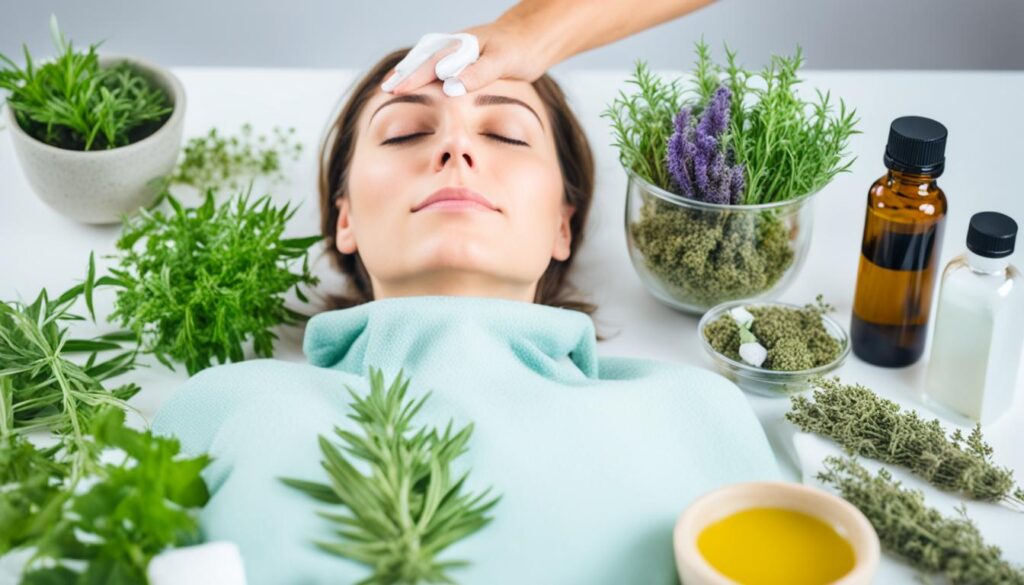
Recognizing Mold Toxicity Symptoms – Key Signs
Welcome to our informative article on mold toxicity symptoms and signs of mold exposure. Mold is a common household issue that can have detrimental effects on your health if left unaddressed. By recognizing the key signs of mold toxicity, you can take the necessary steps to protect yourself and your loved ones.
Mold toxicity symptoms can vary depending on the individual and the extent of exposure. Some common signs to watch out for include:
1. Respiratory issues such as coughing, wheezing, and shortness of breath.
2. Allergic reactions like sneezing, itching, and watery eyes.
3. Headaches and migraines that persist or worsen in certain environments.
4. Fatigue and general feelings of malaise.
5. Skin rashes, hives, or other dermatological issues.
If you experience any of these symptoms or suspect mold exposure in your home or workplace, it is crucial to take action promptly. By addressing the root cause of mold and implementing necessary remediation measures, you can improve your overall well-being.
Key Takeaways:
- Recognizing mold toxicity symptoms is crucial for protecting your health.
- Common signs include respiratory issues, allergic reactions, headaches, fatigue, and skin problems.
- If you experience these symptoms, address the mold exposure promptly.
- Implementing remediation measures can help improve your health and well-being.
- Consult a professional if you need assistance with mold assessments or remediation.
Understanding Black Mold and its Health Effects
Black mold, also known as toxic mold, can have detrimental effects on both your health and indoor air quality. Recognizing the risks associated with black mold exposure and understanding its specific symptoms is essential for safeguarding your well-being.
Exposure to black mold can lead to a variety of health problems, ranging from mild to severe. Some individuals may experience immediate symptoms upon exposure, while others may develop health issues over time due to prolonged exposure.
The Health Risks of Black Mold
Black mold produces mycotoxins, which are toxic substances that can cause adverse health effects. When inhaled or touched, these mycotoxins can trigger an allergic reaction and irritate the respiratory system, leading to respiratory problems such as coughing, wheezing, and difficulty breathing.
Furthermore, prolonged exposure to black mold can weaken the immune system, making individuals more susceptible to infections and other illnesses. In some cases, black mold exposure can even lead to toxic mold syndrome, a condition characterized by severe symptoms and chronic health issues.
Common Symptoms of Black Mold Exposure
The symptoms of black mold exposure can vary depending on the individual’s sensitivity and the duration of exposure. Some common symptoms include:
- Respiratory Issues: Persistent cough, wheezing, shortness of breath
- Allergic Reactions: Sneezing, runny or congested nose, itchy or watery eyes
- Headaches: Recurring headaches or migraines
- Fatigue: Constant tiredness, lack of energy
- Brain Fog: Difficulty concentrating, memory problems
- Skin Irritation: Rashes, itching, redness
If you experience any of these symptoms and suspect black mold exposure, it is crucial to consult with a healthcare professional. They can evaluate your symptoms, perform necessary tests, and provide appropriate treatment or guidance.
Remember, early detection and prompt action are key in mitigating the health risks associated with black mold exposure.
Mycotoxin Exposure and Mold Toxicity Symptoms
Mold can release harmful mycotoxins into the air, which can be detrimental to human health. When people are exposed to mycotoxins, they may experience a range of mold toxicity symptoms and mold-related illness. It is crucial to understand the effects of mycotoxin exposure and how it can manifest in order to recognize and address these symptoms effectively.
The Effects of Mycotoxin Exposure
Exposure to mycotoxins can have various effects on the body, depending on the specific type of mold and the concentration of mycotoxins present. These effects can range from mild to severe, impacting different systems and organs in the body.
Some common effects of mycotoxin exposure include:
- Respiratory issues
- Allergic reactions
- Neurological symptoms
- Immune system dysfunction
- Gastrointestinal problems
- Skin irritations
It’s important to note that the severity of these effects can vary from person to person, depending on factors such as the individual’s overall health, the duration of exposure, and the concentration of mycotoxins in the environment.
Recognizing Mold Toxicity Symptoms
Mold toxicity symptoms can manifest in various ways, making them sometimes difficult to pinpoint. However, being aware of the common symptoms associated with mold exposure can help individuals identify potential mold-related illness and seek appropriate medical attention.
Some common mold toxicity symptoms include:
- Respiratory issues, such as coughing, wheezing, and shortness of breath
- Frequent headaches or migraines
- Fatigue and weakness
- Allergic reactions, including sneezing, itching, and watery eyes
- Cognitive difficulties, such as difficulty concentrating or memory problems
- Joint and muscle pain
- Gastrointestinal problems, like nausea, diarrhea, or abdominal pain
- Skin rashes or irritations
If you are experiencing one or more of these symptoms and suspect mold exposure or mycotoxin exposure, it is recommended to consult with a healthcare professional familiar with mold-related illnesses for an accurate diagnosis and appropriate treatment.
Seeking Proper Medical Evaluation
Due to the complexity and variability of mold toxicity symptoms, it is crucial to seek proper medical evaluation from healthcare providers experienced in diagnosing and treating mold-related illnesses. They can conduct thorough evaluations, including medical history reviews, symptom assessments, and possibly diagnostic tests, to determine the cause of the symptoms and develop an appropriate treatment plan.
Treatment Options and Remedies for Mold Toxicity
If you suspect mold toxicity or have been diagnosed with mold-related illness, it is crucial to explore the available treatment options and remedies. Addressing mold toxicity requires a comprehensive approach that combines medical treatments and lifestyle changes.
Medical treatments for mold toxicity often involve medications and therapies aimed at alleviating symptoms and supporting the body’s detoxification process. Depending on the severity of your condition and the specific symptoms you experience, your healthcare provider may recommend:
- Antifungal medications: These medications can help eliminate mold spores from the body and reduce the risk of further complications. Your healthcare provider will determine the appropriate antifungal treatment based on your individual needs.
- Allergy medications: Mold toxicity can trigger allergic reactions in some individuals. Antihistamines and other allergy medications can help manage symptoms such as sneezing, itching, and nasal congestion.
- Immunotherapy: In severe cases of mold allergy, your healthcare provider may recommend immunotherapy. This treatment involves receiving regular injections of small amounts of allergens, including mold spores, to reduce your sensitivity over time.
- Nasal corticosteroids: If you experience sinus inflammation or nasal congestion due to mold exposure, nasal corticosteroid sprays may be prescribed to reduce the inflammation and improve breathing.
- Supportive therapies: To boost your immune system and aid in detoxification, your healthcare provider may recommend nutritional supplements, intravenous therapy, or other supportive treatments.
In addition to medical treatments, lifestyle changes are crucial in addressing mold toxicity and preventing further exposure. Consider implementing the following remedies to mitigate the effects of mold spores:
- Mold remediation: Identify and address the source of mold growth in your environment. Engage the services of a professional mold remediation company to safely remove existing mold and prevent future outbreaks.
- Improve ventilation: Proper ventilation can help reduce moisture levels and prevent the growth of mold in your home. Open windows, use exhaust fans, and ensure proper airflow in your living spaces.
- Reduce humidity: Keep humidity levels in your home below 50 percent to discourage mold growth. Consider using dehumidifiers, fixing leaks promptly, and insulating areas prone to condensation.
- Avoid damp areas: Mold thrives in damp environments, so be cautious in areas such as basements, bathrooms, and kitchens. Use moisture-resistant materials and dry any spills or water leaks immediately.
- Improve indoor air quality: Use air purifiers or high-efficiency particulate air (HEPA) filters to remove mold spores and other pollutants from the air in your home.
Incorporating these treatment options and remedies into your daily routine can help minimize the health issues caused by mold spores and improve your overall well-being.

Conclusion
In conclusion, recognizing the signs of mold toxicity symptoms is crucial for safeguarding your health. Mold exposure can lead to adverse health effects, and it is essential to understand the symptoms that can arise from such exposure. By being aware of these symptoms, you can take proactive steps to address mold-related illness and prevent further health complications.
Fortunately, there are various treatment options and remedies available for mold toxicity. Seeking professional assistance from experts like Fix Mold Miami at 305-465-6653 can help you navigate through mold assessments, prevention, and remediation processes. Their expertise in dealing with mold-related issues can provide you with the necessary guidance and support to tackle mold toxicity effectively.
Remember, your health and well-being are paramount. By staying informed about mold toxicity symptoms, understanding the health effects of black mold and mycotoxin exposure, and exploring available treatment options, you can actively protect yourself and your loved ones from the harmful effects of mold-related illness. Take the necessary steps towards creating a healthier living environment and ensuring the well-being of your household.




